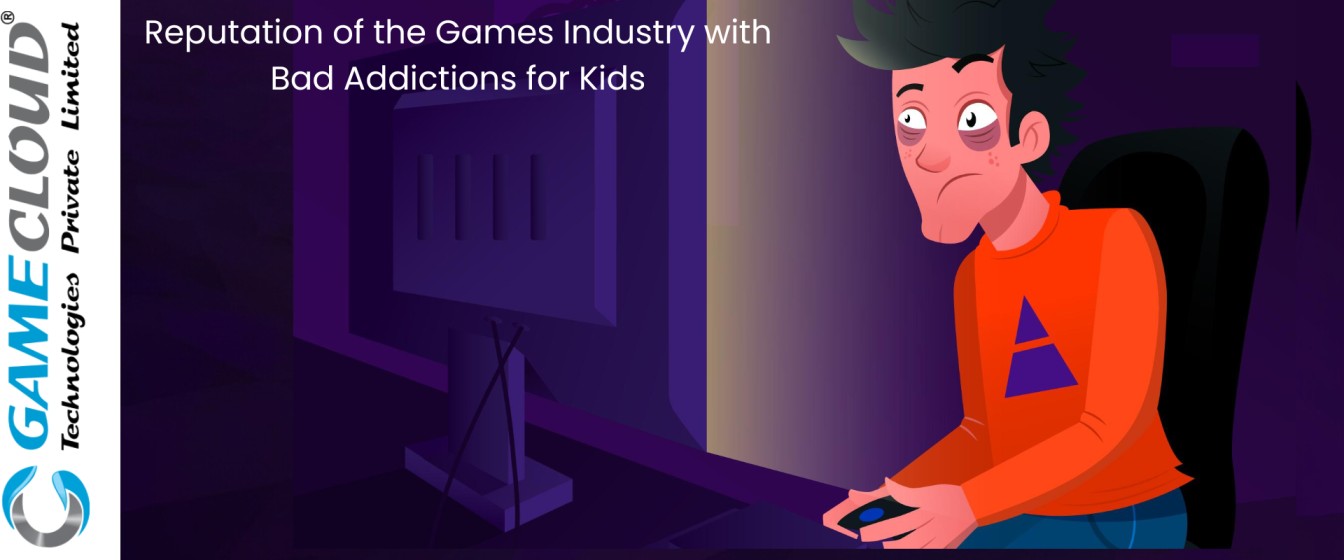
The gaming industry has long been a lightning rod for controversy, often finding itself at the center of debates about addiction, violence, and the impact of screen time on young minds. While these concerns aren’t without merit, they’ve overshadowed the immense potential of games as powerful educational tools. It’s time to shift the narrative and explore how educational games can reshape the industry’s reputation and benefit children’s development.
The Double-Edged Sword of Gaming
The gaming industry faces a PR problem regarding its impact on children. While games can be highly engaging and potentially valuable learning tools, concerns persist about gaming addiction, controversial monetization practices, and the effects of violent content on young players. Parents and educators worry that excessive screen time and gaming may negatively impact social skills, academic performance, and physical health. However, games that provide creativity, problem-solving, and social interaction can also benefit child development when played in moderation and with appropriate guidance.
The Untapped Potential of Educational Games
Enter educational games: the unsung heroes of the gaming world. These games aim to harness the addictive qualities of gaming for good, turning screen time into learning time. But why aren’t they more prevalent? Why hasn’t the industry pivoted more strongly towards educational content?
The truth is that creating compelling educational games is no easy feat. It requires a delicate balance of fun and learning, entertainment and instruction. Many early attempts at educational games were, let’s be honest, about as exciting as a dusty textbook. But times are changing, and so are the games.
The New Wave of Educational Gaming
Today’s educational games are light-years ahead of the clunky math and spelling games of yesteryear. They’re leveraging cutting-edge technology and game design principles to create immersive learning experiences:
- Virtual Reality (VR) Field Trips: Imagine students exploring ancient Rome, walking on the surface of Mars, or diving into the depths of the ocean – all from their classroom. VR educational games are making this a reality, providing vivid, unforgettable learning experiences.
- Coding Through Play: Games like “Human Resource Machine” and “Minecraft: Education Edition” are teaching kids programming concepts through engaging puzzles and world-building challenges. These games don’t just teach coding; they ignite a passion for problem-solving and creative thinking.
- History Comes Alive: Strategy games like the “Civilization” series or “Assassin’s Creed Discovery Tour” mode offer deep dives into historical periods, allowing players to experience the complexities of different cultures and eras firsthand.
- STEM Skill Building: Games like the “Kerbal Space Program” provide hands-on experience with physics and engineering concepts as players design and launch their spacecraft. It’s rocket science made accessible and fun.
- Language Learning Adventures: Language learning apps like Duolingo have gamified the process of vocabulary acquisition and grammar practice, making daily language study addictive (in a good way).
The Cognitive Benefits: More Than Just Facts and Figures
The benefits of well-designed educational games extend far beyond mere knowledge acquisition. They can enhance:
- Critical Thinking: Many games require players to analyze situations, make decisions, and solve complex problems.
- Creativity: Open-ended games encourage players to think outside the box and come up with innovative solutions.
- Collaboration: Multiplayer educational games teach teamwork and communication skills.
- Persistence: Games inherently teach players to learn from failure and keep trying – a crucial life skill.
A Call to Action: Reshaping the Industry’s Future
The gaming industry has the opportunity to transform its reputation by embracing educational games. Major gaming companies should allocate more resources to developing high-quality educational titles. Game developers need to collaborate with teachers and educational experts to create games that align with learning objectives. Policymakers should incentivize the development and adoption of educational games in schools, and parents need resources to understand the benefits of educational gaming and how to integrate it into their children’s digital diet. More research funding should be directed towards studying the impacts and best practices of educational gaming.
LolzSoft’s Educational Games Offer a Positive Alternative
LolzSoft, a subsidiary of the gaming giant GameCloud Technologies, specializes in developing video games with a creative and educational twist. Our mission is to create games that not only entertain but also inspire and educate players, including children. Our focus on educational games could provide a positive alternative to the gaming industry’s potential negative impacts on children, as our games are designed to be both fun and enriching. By utilizing our expertise in rapid game prototyping and our commitment to meaningful gaming experiences, the gaming industry may be able to offer more wholesome options that remove the risks of addictive behaviors while still providing enjoyment for young players.
Conclusion: Gaming’s Educational Renaissance
The gaming industry has an opportunity to reshape its reputation by embracing educational games. By leveraging the engaging nature of games, developers can create powerful learning experiences that blur the line between education and entertainment. This future, where parents and schools eagerly embrace educational games as core teaching tools, is within reach if key stakeholders – game developers, educators, policymakers, and parents – work together to harness the potential of educational games and transform how kids learn in the digital age.
